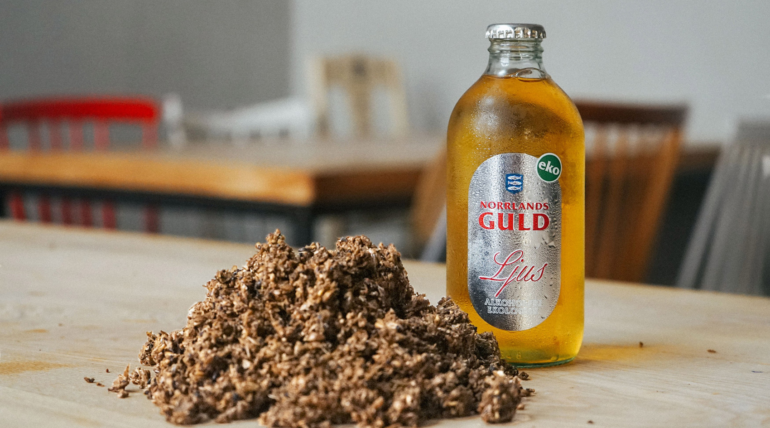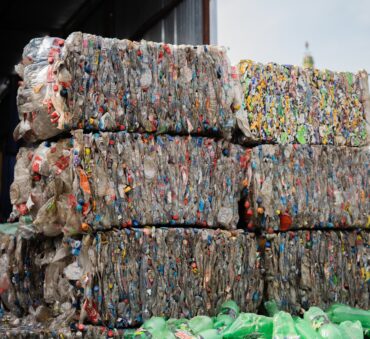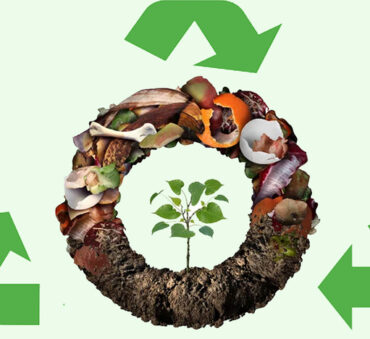Recycling beer waste is an essential aspect of the brewing industry, as it inevitably generates a significant amount of waste. In fact, for every 100 liters (about 26.42 gal) of beer produced, 20 kilograms of wet BSG (Brewers Spent Grain) are generated, resulting in an annual global total of approximately 40 million tons. Given the magnitude of waste, it is crucial for breweries and all those in the beverage industry to have a clear understanding of their responsibilities and opportunities in managing this waste.
This blog will explore what brewery waste is, the various uses for spent grains, the business benefits of recycling beer waste, and other important considerations about beer and beverage destruction.
What is Brewery Waste?
Brewery waste is the term used to describe the residual byproducts generated during the beer production process. These byproducts can be categorized into two main types: solid and liquid waste.
Solid waste primarily consists of spent grains, which typically account for up to 85% of a brewery’s total waste by weight. These are the result of the mashing process, where malted grains are steeped in hot water to extract the sugars needed for fermentation. After the sugars are extracted, the remaining spent grains are separated from the liquid wort.
Liquid waste includes wastewater resulting from various stages requiring large volumes of water, including mashing, boiling, cooling, cleaning, and rinsing.
How Can Breweries Effectively Recycle Their Organic Waste?
Recycling beer waste not only helps breweries reduce their environmental impact but also creates valuable resources for various industries. By repurposing beer waste, breweries can contribute to a circular economy and promote sustainable practices. Some compelling use cases include:
1. Animal Feed
Spent grains are rich in proteins, fiber, and minerals, making them a nutritious and cost-effective feed option for livestock.
2. Composting
Organic waste components can be composted to create nutrient-rich soil amendments. This helps reduce the volume of waste destined for landfills while providing valuable organic matter and nutrients to enrich soil fertility.
Food Production
Spent grains can be upcycled as a sustainable ingredient in various food products, such as bread, cookies, snack bars, and pasta. Their high protein and fiber content and unique flavor profile make them an attractive and eco-friendly option for innovative food producers.
4. Biogas Production
Brewery waste can also be used as feedstock for anaerobic digestion systems, which produce biogas. This biogas, consisting primarily of methane and carbon dioxide, can be captured and converted into renewable energy for heating, electricity generation, or even transportation fuel.
How does Recycling Beer Waste Benefit breweries?
Recycling beer waste offers numerous advantages for breweries, both from an environmental and a business perspective. By partnering with a professional recycling company like ShapiroE, breweries can reap the benefits of efficient and responsible waste management.
1. Cost Savings
Recycling beer waste helps breweries reduce their overall waste disposal costs. By repurposing materials, breweries can minimize the volume of waste that needs to be managed and disposed of, thus reducing the costs associated with waste handling and disposal.
2. Revenue Generation
Breweries can convert their organic waste into valuable byproducts, such as animal feed, compost, or biogas, which can be sold to generate additional revenue streams. This contributes to the overall profitability of the business.
3. Enhanced Brand Image
By adopting effective recycling practices, breweries show a commitment to sustainable practices, which can enhance the brewery’s reputation among consumers and stakeholders. This commitment to sustainability can attract environmentally conscious customers, leading to increased sales and customer loyalty.
4. Regulatory Compliance
It can also help your business comply with environmental regulations and industry best practices. Shapiro’s expertise in waste management ensures that your waste recycling processes adhere to all relevant legal requirements, reducing the risk of fines and penalties.
5. Improved Operational Efficiency
Shapiro’s customized recycling solutions can streamline your brewery’s waste management processes, improving overall operational efficiency. By optimizing waste handling, transportation, and recycling, you can focus on your core business activities while knowing your waste is being managed responsibly and effectively.
6. Enhanced innovation
Recycling beer waste can foster a culture of innovation within the brewery as employees continually seek new ways to maximize the value of waste materials. This innovative mindset can translate into other aspects of the business, driving overall growth and competitiveness.
7. Scalable Solutions
As your brewery grows and evolves, so do your waste management needs. Shapiro’s flexible and scalable recycling solutions can adapt to your changing requirements, ensuring that your waste management strategy remains effective and efficient over time.
Our Proven Process for Efficient Brewery Waste Repurposing
Organic recycling, including brewery waste, requires a deep understanding of waste composition, handling procedures, and potential applications. Trusting a professional recycling company like Shapiro ensures that your waste is managed efficiently and responsibly while adhering to all applicable regulations and industry best practices.
1. Contact Us
The first step in the process is to contact our team of experts to discuss your brewery’s specific waste management requirements. Our team will gather all the necessary information to understand your brewery’s waste streams and recycling needs.
2. Proposal
We will then coordinate with our network of vendors to find the best solution. We will put together a proposal that outlines the most suitable options, taking into account factors such as waste volume, composition, and location. This proposal will also include details about the costs, benefits, and logistics involved in the process from start to finish.
3. Transport Arrangements
Once you have agreed to the recycling proposal, we can either arrange transportation to the processing facility ourselves or work with you to coordinate your own transport solution. However, we would recommend using our transport team as they ensure that all waste is transported safely and efficiently, adhering to strict safety and environmental standards.
4. Waste Processing
Upon arrival at the processing facility, all your waste will undergo comprehensive processing. Depending on the type of waste and its intended use, this may include separation, drying, grinding, or other treatment methods. Throughout this process, only the best and most advanced recycling technologies and techniques are used to optimize waste resource recovery and upcycling opportunities.
Certificate of Recycling
Once everything has been successfully processed and recycled, we will provide you with a Certificate of Recycling from the relevant recycling facility. This document serves as proof that your waste has been managed responsibly and in compliance with all applicable environmental regulations
Addressing Some Additional Common Queries
Is it mandatory to recycle beer waste?
While regulations surrounding beer waste recycling may vary depending on the state, region, or municipality, it is generally not mandatory for breweries to recycle their waste. However, it is highly recommended due to its numerous environmental and economic benefits.
What are the regulations governing the disposal or recycling of brewery waste?
The regulations governing the disposal or recycling of brewery waste may differ depending on the location and jurisdiction of the brewery. However, there are some general guidelines and regulations that are commonly followed by breweries:
Local regulations
The first step for breweries is to check the local regulations regarding the disposal of brewery waste. This may include requirements for obtaining permits or complying with specific environmental standards.
Solid waste regulations
Most breweries generate a significant amount of solid waste, such as spent grains, hops, and yeast. In many cases, these wastes can be recycled or reused as animal feed, compost, or fuel. However, breweries may need to comply with regulations regarding the storage, transport, and disposal of solid waste.
Wastewater regulations
Brewing also generates wastewater, which may contain high levels of organic matter and other pollutants. To comply with regulations, breweries may need to treat their wastewater before discharging it into the sewer system or the environment.
Hazardous waste regulations
Some materials used in brewing, such as cleaning agents and chemicals, may be considered hazardous waste. Breweries may need to follow specific regulations for the storage, transport, and disposal of these materials.
How to choose a beer waste recycling company?
When choosing a beer waste recycling company to partner with, it’s important to consider the following:
Expertise and Experience
Look for a company with a strong track record and extensive experience in managing brewery waste. They should have the necessary knowledge, skills, and technology to handle your waste effectively and safely.
Customized Solutions
The beer waste recycling company should assess your specific waste streams and provide tailored beverage recycling solutions that optimize waste management and resource recovery.
Compliance and Certification
Ensure that the company adheres to all relevant regulations and industry best practices. They should also provide a Certificate of Recycling as proof of responsible waste management.
Reputation and Customer Feedback: Research the company’s reputation, including customer reviews and testimonials, to ensure they are reliable and trustworthy.
Environmental Commitment
Choose a beverage recycling company that demonstrates a strong commitment to sustainability, environmental stewardship, and the use of advanced recycling technologies.
Flexibility and Scalability
A good recycling company should offer flexible and scalable solutions that can adapt to your brewery’s changing needs, ensuring that your waste management strategy remains effective and efficient over time.
Customer Support and Communication
Select a beer waste recycling company that maintains open communication and offers responsive customer support. This ensures you stay informed about your waste management progress and receive assistance when needed.
It is clear that the circular brewery is not just a trend but a future-forward approach to creating a more sustainable and profitable brewing industry. Contact our team of experts today to find out how you can optimize and upcycle your waste streams to their full potential.
Baily Ramsey, an accomplished marketing specialist, brings a unique blend of anthropological insight and marketing finesse to the digital landscape. Specializing in educational content creation, she creates content for various industries, with a particular interest in environmental initiatives.


